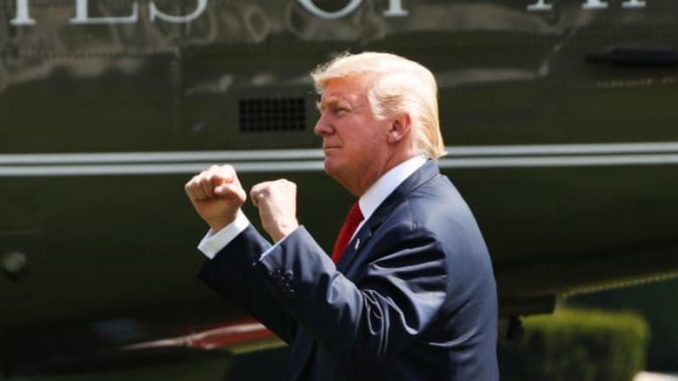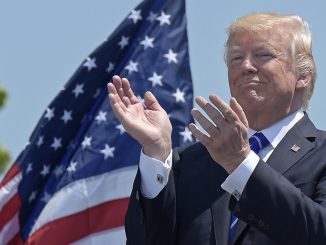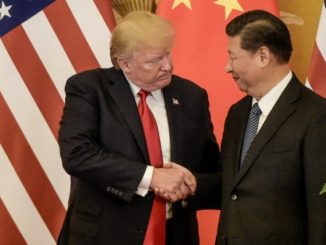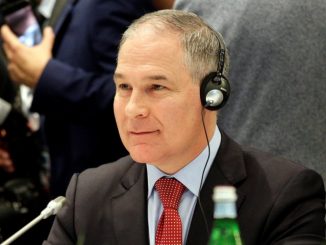
A sugar hit from the Trump administration’s US tax cuts is expected to propel world economic growth to 3.9 per cent in 2018, the best result in eight years.
In an update to its forecasts presented to the World Economic Forum at Davos in Switzerland, the International Monetary Fund said the global economy should grow by 3.9 per cent in 2018 and 2019, up from the 3.7 per cent per year it forecast in October.
Half the upgrade was due to the $US1.5 trillion ($A1.88 trillion) in tax cuts. Its forecasts assume that the hit to US tax revenues will “not be offset by spending cuts in the near term” meaning that the economies of the US and the countries it trades with will benefit as the US budget deficit deteriorates.
It has lifted its forecasts for US growth from 2.3 to 2.7 per cent in 2018 and from 1.9 to 2.5 per cent in 2019.
Widget not in any sidebars
Beyond 2022 it is expects lower than previously forecast US growth as the next US administration attempts to get the deficit under control and as the “temporary exceptional” five-year tax write-off for investment in business assets expires.
“This short-term growth boost will have positive, albeit short-lived, output spillovers for US trade partners,” said IMF director of research Maurice Obstfeld. “But it will also likely widen the US current account deficit, strengthen the US dollar, and affect international investment flows.”
Treasurer Scott Morrison welcomed the temporary upgrade saying it “directly contradicts Labor’s claim that the Trump company tax cuts have nothing to do with the uptick in economic growth around the world”.
“This backs up our positive outlook for Australia’s economy in 2018. It is why this government will continue to seek support for our enterprise tax plan.”
Only half of the government’s $50 billion program of company tax cuts has become law. Company tax is set to fall from 30 per cent to 25 per cent for small and medium-size businesses, but not for big ones.
Mr Morrison said he wanted Australians “to seize the opportunities ahead, rather than be left behind”.
The IMF believes the US tax cuts will benefit countries such as China that supply goods and machines to the United States and countries such as Australia that supply the raw materials used to make them.
Much of the growth upgrade is due to a strengthening of the coordinated upswing under way since mid-2016.
This short-term growth boost will have positive, albeit short-lived, output spillovers for US trade partners
IMF director of research Maurice Obstfeld
The economies of 120 countries, accounting for three-quarters of world GDP, grew faster than expected in 2017 in “the broadest synchronised global growth upsurge since 2010”.
Widget not in any sidebars
Growth was especially strong in Germany, Japan, Korea, the United States, Brazil, China, and South Africa.
The report warns that, as important as lower interest rates have been to the recovery, they have left a legacy of debt, both government and private.
Professor Obstfeld said that although inflation and interest rates remained low for now, a sudden rise from current levels, perhaps due to “pro-cyclical developments” such as the US tax cuts, could tighten financial conditions and prompt markets to re-evaluate debt sustainability. Share prices would also be vulnerable.
A PricewaterhouseCoopers survey of 1300 chief executives released at the forum found 57 per cent expect better economic growth over the next 12 months, almost double the 29 per cent that expected it a year ago.
Among US executives the proportion expecting stronger growth jumped from 39 per cent to 53 per cent.
The US had cemented its position as the most attractive location for investment, named by 46 per cent of the executives, up from 43 per cent.
Germany, Britain, India and Japan were the next most attractive locations. Australia fell from the 10th to the 11th most attractive location, nominated by 5 per cent of chief executives.







Be the first to comment